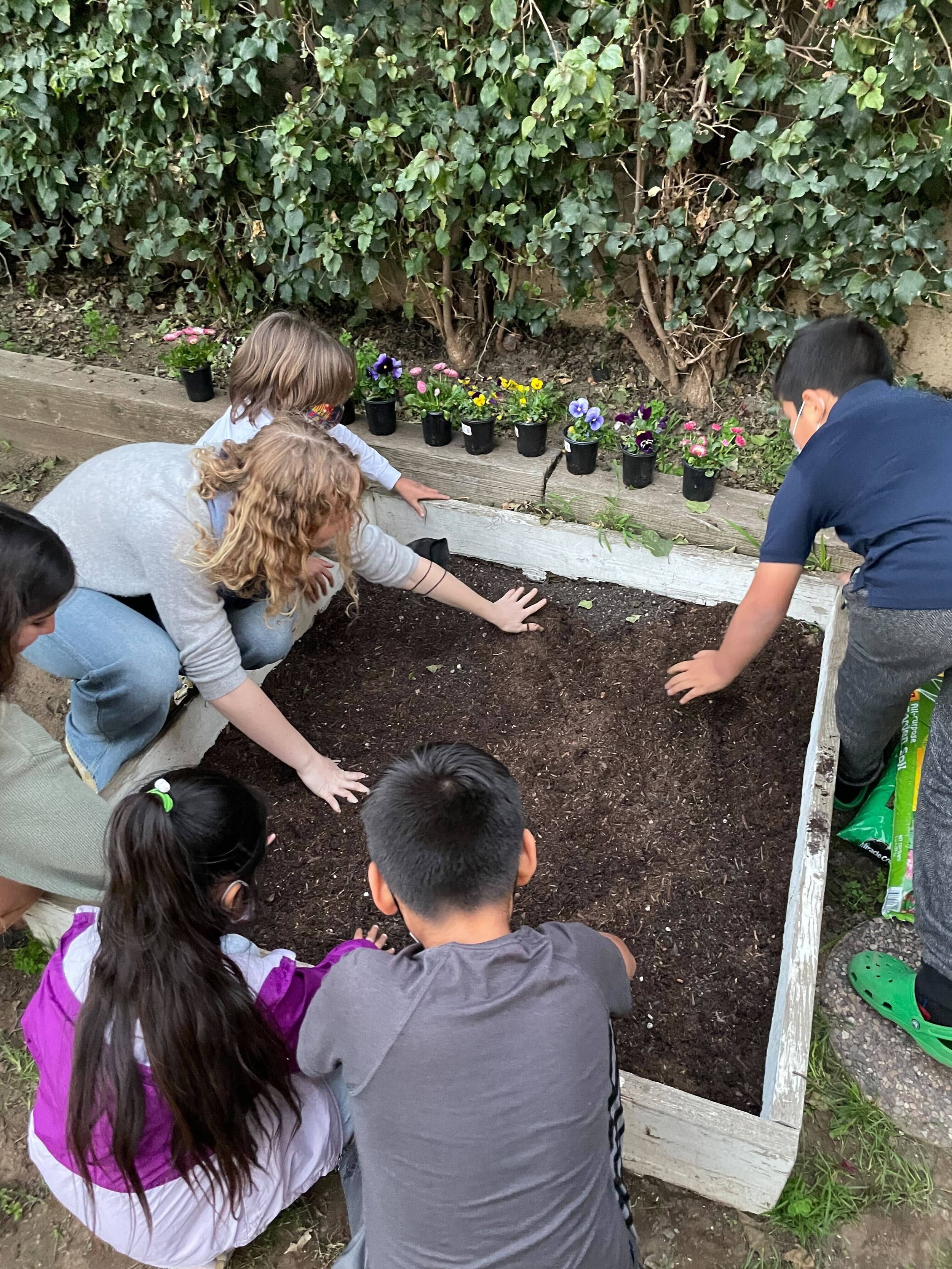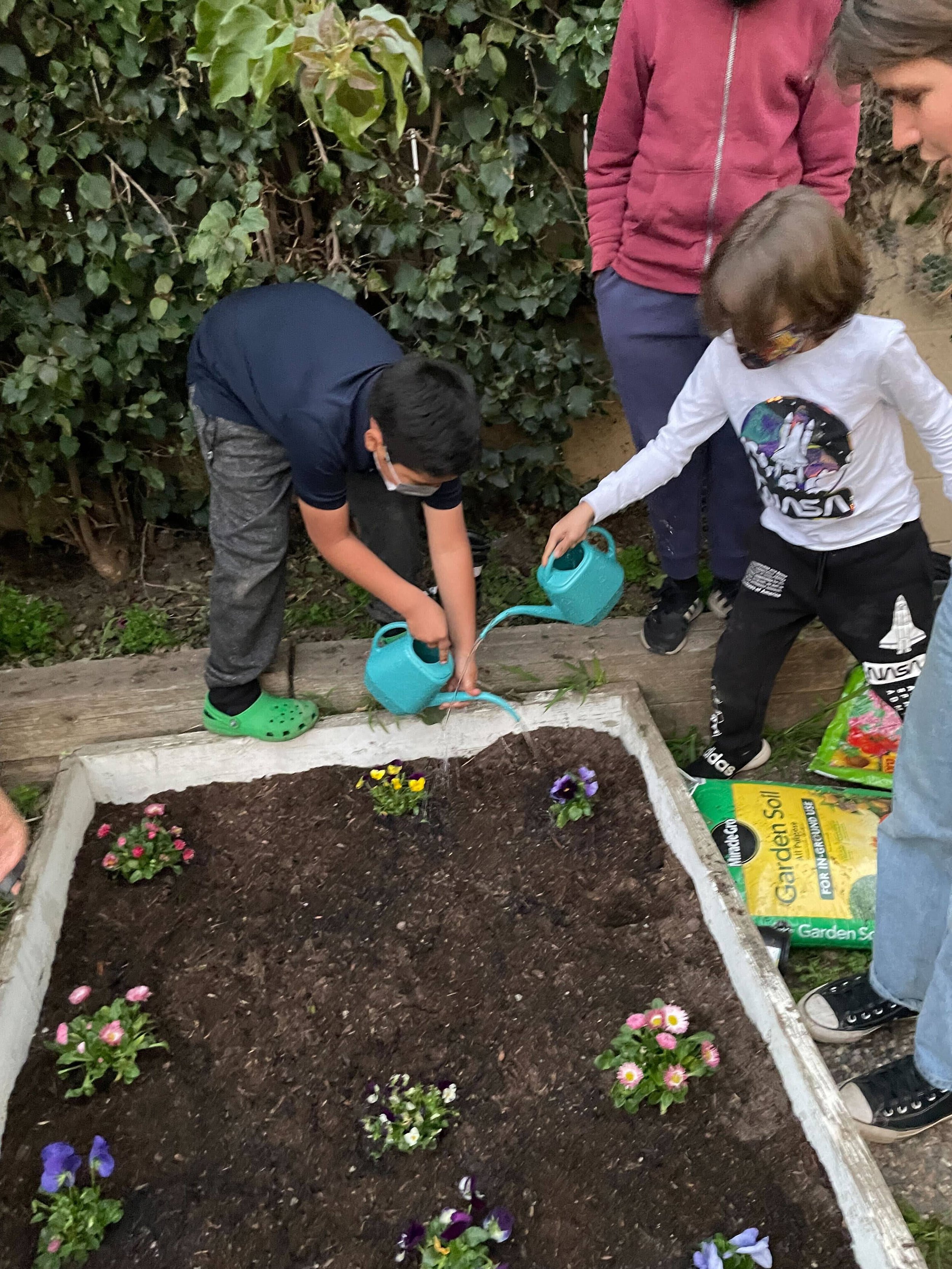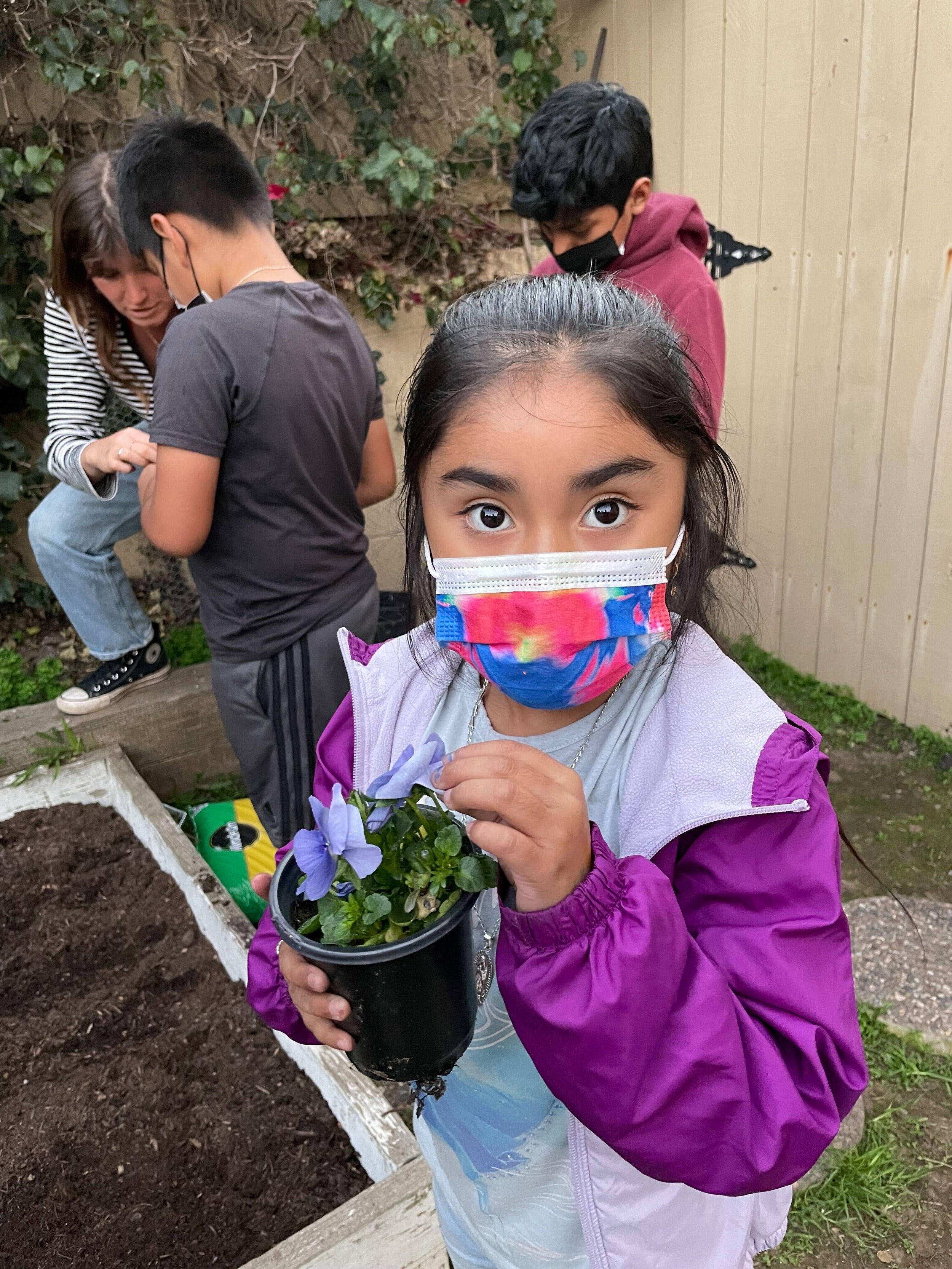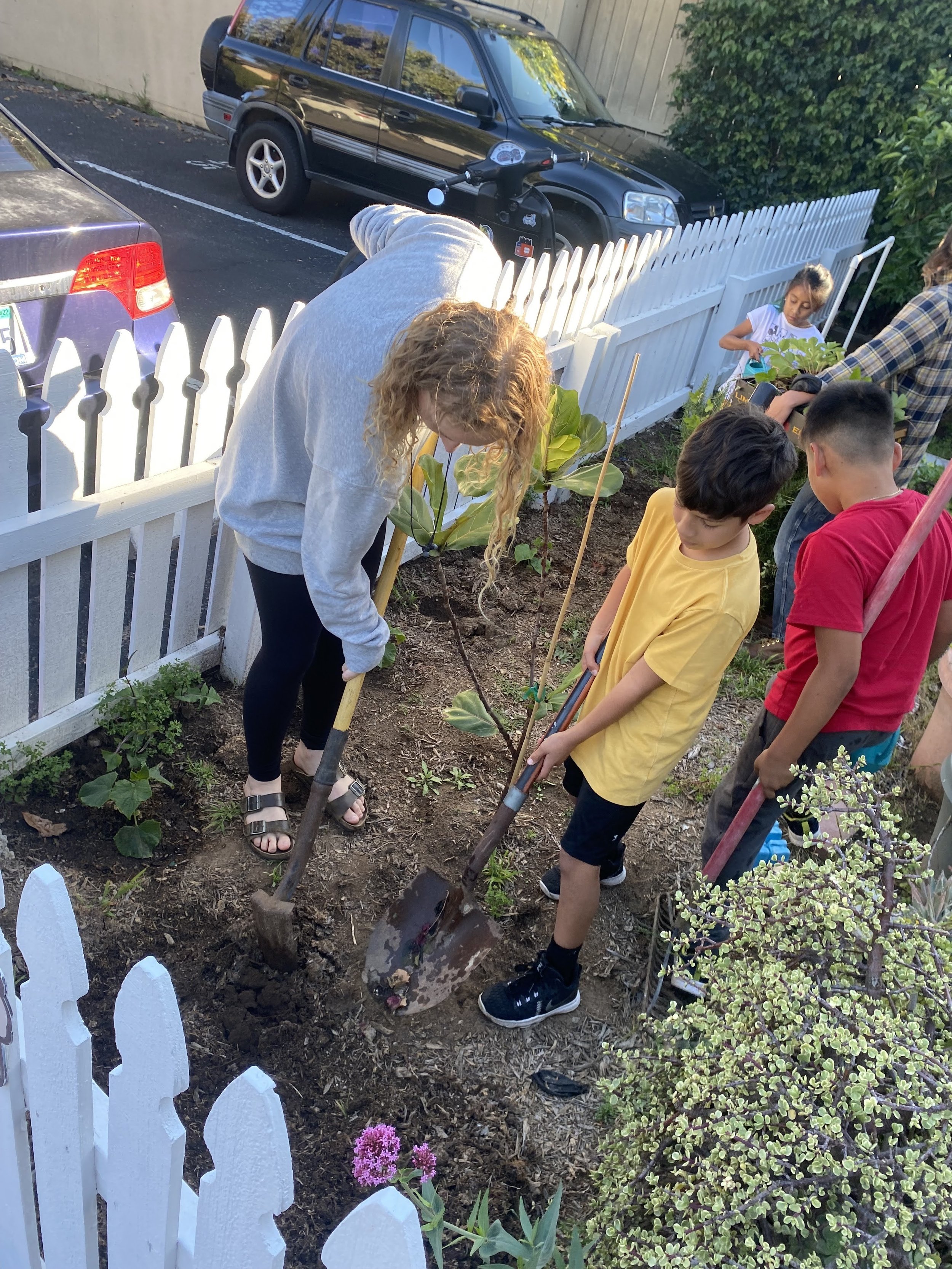Grow Where You’re Planted
In the aftermath of the COVID-19 pandemic, it has become increasingly obvious just how important it is for kids’ health to be able to spend time outdoors and in community with each other. It can be easy to take things for granted until they are taken away and the lack is felt more deeply than expected. One of the ways that we have been intentional in getting our students at our CLCs (community learning centers) to have that time outdoors with each other is through gardening! Gardening offers so many benefits as an extracurricular activity physically, mentally, emotionally, and communally. Our students get to work in our garden boxes once a week, growing and tending to fruits and vegetables that they eventually get to share and eat with each other, and they get to spend that time outdoors with their classmates in community.
One of the incredible benefits of gardening is that it encourages students to make healthier eating choices in their younger years that will last into adulthood. Not only are they able to eat fresh and organic foods; being engaged in the process of growing produce from the seed to the finished product actually establishes a much more mindful relationship with food and eating habits that follow. The culture of eating in America has many flaws. Fast food restaurants in every city provide cheap and quickly accessible food options, but the quality of the food is poor and the amount of waste produced is not good for the environment. The culture of snacking while multitasking leads to mindless eating, binging, and disrupts healthy and consistent meal times because individuals become full, but not satisfied, from snacking. Many adults use food as a system of pleasure and punishment, labeling certain foods as good or bad, limiting or increasing intake of certain foods based on behaviors which can open the door to eating disorders. Students who grow their own food are able to both visibly and physically follow the process of how food is produced, put labor into helping it grow, and enjoy the food that they have worked hard to sustain. Not only does this force them to be more intentional about how they fuel their bodies, but it also gives them a healthy sense of self-respect at having put in hard work and directly reaped the reward. Gardening is also a great form of exercise; it takes hard work to physically prepare the soil for planting, to water it consistently, to remove weeds multiple times a week, and to prune branches to control growth. This utilizes and hones both fine and gross motor skills, and gives kids the opportunity to soak up vitamin D from the sun.
Gardening gives kids a chance to apply and see the knowledge they learn in school in action! As they learn in school about photosynthesis and the science behind plant growth, they get to watch and engage that knowledge in real life! They will be far more likely to retain and appreciate the knowledge they learn in school if they can apply it and watch it work for them. It also teaches students about sustainability, how to steward the earth well and why it is important to take care of our natural resources. As the earth sustains us, we must also care for it so it can continue to do so. Our health is connected to the health of the earth, and gardening opens the door for students to explore and appreciate it.
To learn more about our CLCs and the other enrichment activities we offer, click here!





